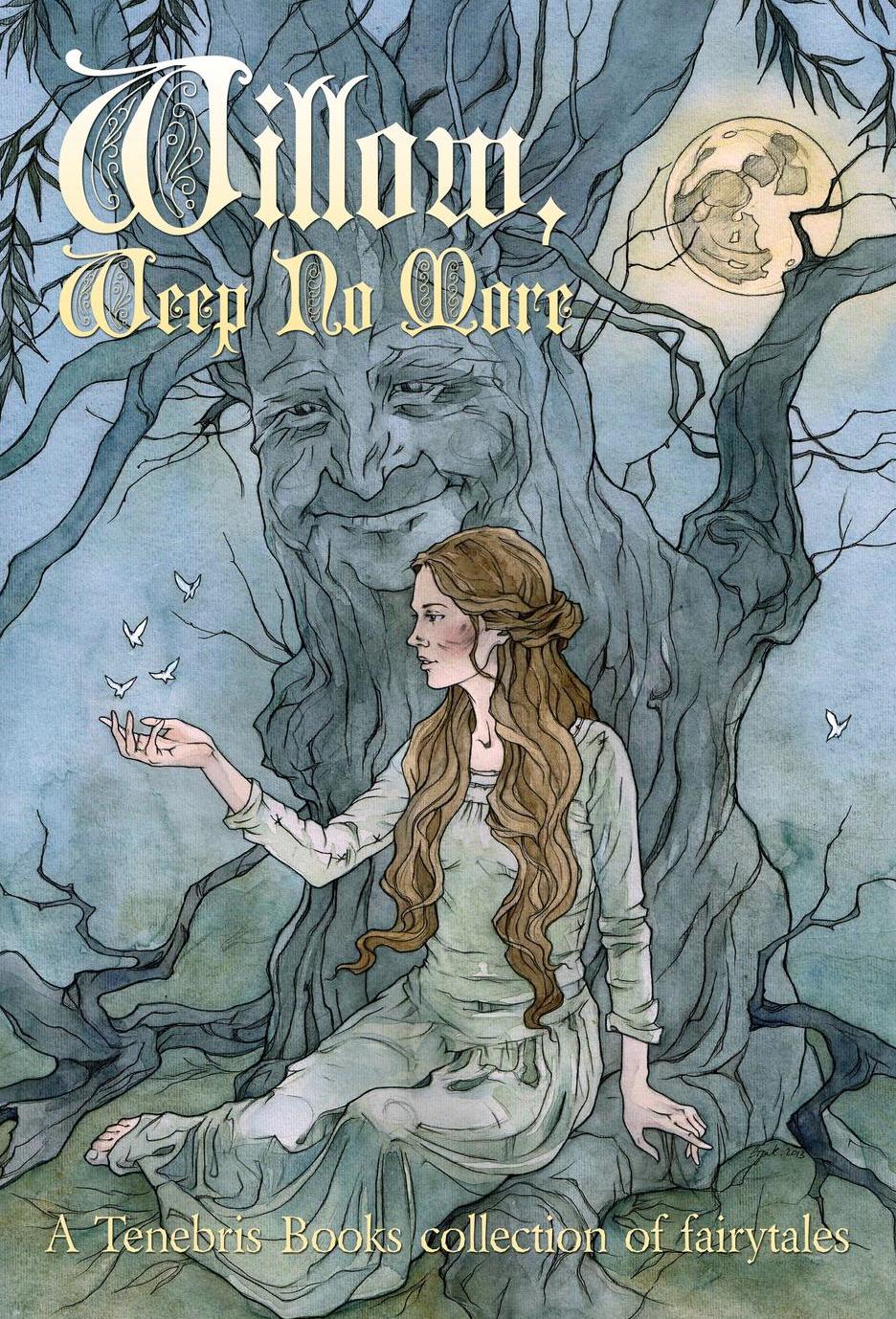Amidst the flurry of activity that is NaNoWriMo, I am taking a moment to talk about the other project that has been keeping me busy in the last couple of months, and to introduce you to a writer friend of mine by the name of Selina Carr. Hi! She’s me. I’m her. And we’ve written a fairytale that is about to be published in a stunning hardback book at the end of November by Tenebris Books (if you’ve read my other posts, you’ll know about my connection there). Willow, Weep No More is a book of traditionally-inspired fairytales and fables that aim to capture the magic of classic fairytales while exploring the themes of inner beauty, wisdom and strength.
Yesterday was the cover reveal, and as you can see, it’s a thing of beauty. As is the rest of the book—believe me, I’ve read it many times already, given that I am the editor. But why would I credit some non-existent person with writing the story I contributed? There are lots of reasons writers adopt a nom de plume, but my reasons were two-fold:
- I have some ideas floating around in my (very full) brain, and some of them are for readers much younger than those I currently write for under my own name. The Eidolon Cycle contains a lot of death, some fairly horrific violence, and as such I would never recommend it for anyone under the age of fifteen or sixteen. So, if I later wrote something intended for ten year olds, and a ten year old loved it and went looking online for something else Zoë Harris had written, he or she would find titles intended for a much older reader. If I ever do write something for younger readers, I will do it under the name “Selina Carr”, and the story in Willow, Weep No More under that name would be fine for someone of that age to read.
- The second reason is ego. No, not to promote it, to deemphasize it. This book is very important to me, and I want it to be viewed by potential readers for what it is, and that is not a platform for me to publish my own work. I was torn about whether to contribute anything at all for exactly this reason, but I love fairytales so much I just couldn’t not write something for it. So, while it is a great thing to put my name to something I’m incredibly proud of, I didn’t want to do it at the expense of the other authors and illustrators who have contributed so much wonderful work. It is my imprint’s first publication, and I want it to be taken seriously, and judged on the merit of its contents. It can’t be “The Zoë Book and other stories”.
So, if I don’t want to confuse my readers, and I’m not about ego, why am I telling everyone who reads my blog? For starters, anyone who knows me personally will crack my code in seconds (Selina is my middle name, and Carr is my partner’s surname). But really, it’s not a secret meant to be kept under lock and key. It’s a branding distinction in the first instance, and an exercise in humility in the second. I truly do want my friends, family, and anyone who is interested in what I do to know about this book, not only because I want to hear their thoughts on my own contribution, but because I want them to read the other stories in the book—stories that are beautiful, poignant, enchanting and full of all the wonder one would expect from a classic fairytale anthology.

